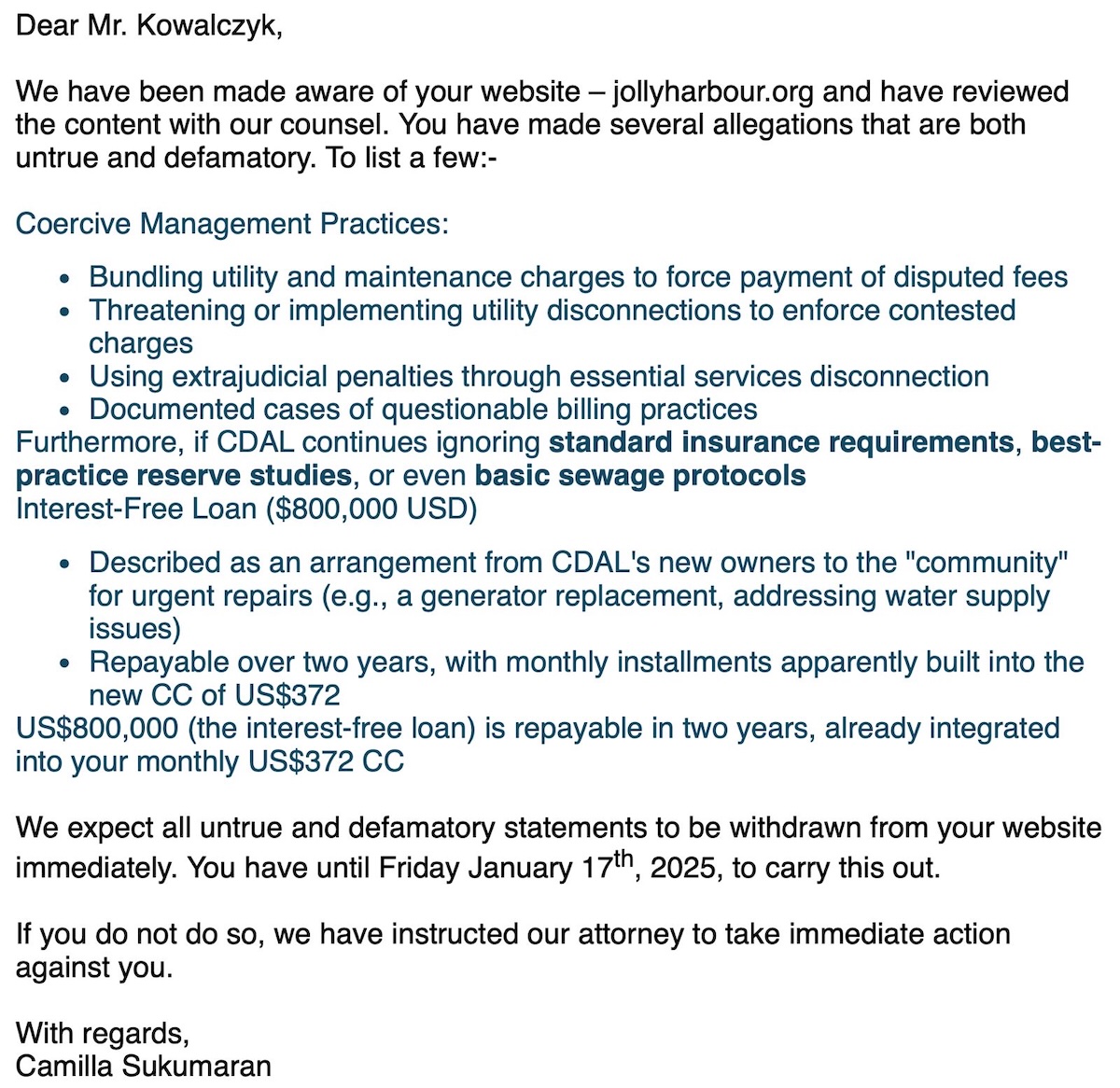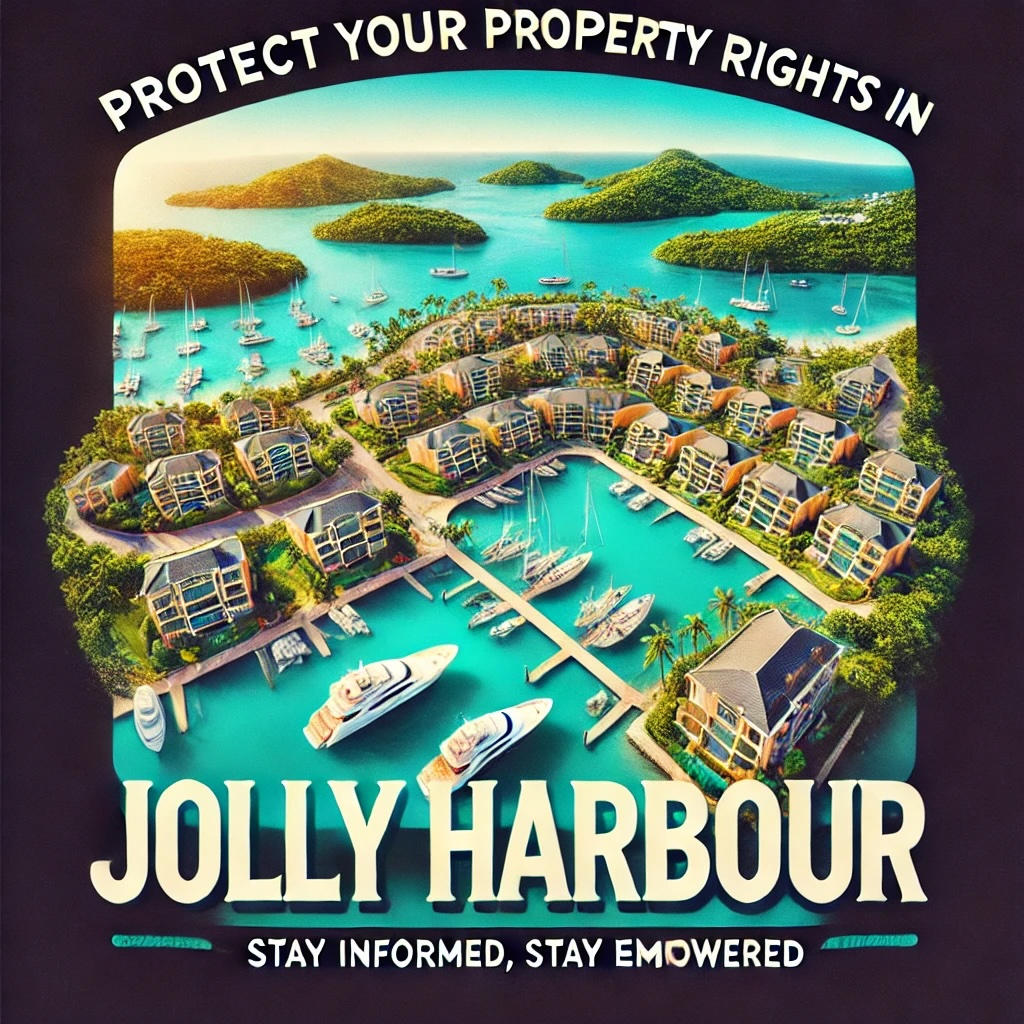On January 10, 2025, a Jolly Harbour freeholder received a cease-and-desist letter from CDAL's management (signed by Ms. Camilla Sukumaran). The letter alleged "defamatory" content on this website—jollyharbour.org—related to billing practices, infrastructure issues, and an interest-free loan used to fund developer-owned assets.

After reviewing the letter and the relevant documents, we—the curators of this communal forum—wish to clarify the following points and share the supporting references so that freeholders can draw their own conclusions based on the facts.
Key Points:
- Multiple Sources: All content derives from public records, court rulings, and official CDAL communications
- Documented Evidence: Every claim is supported by verifiable documentation
- Collective Forum: This site represents a community-wide effort to ensure transparency
- Open to Correction: We welcome any factual evidence that might require updates or corrections
📄 Full Article Access
To access the complete article: Contact legal -at- jollyharbour -dot- org with your property details to receive the full content.
